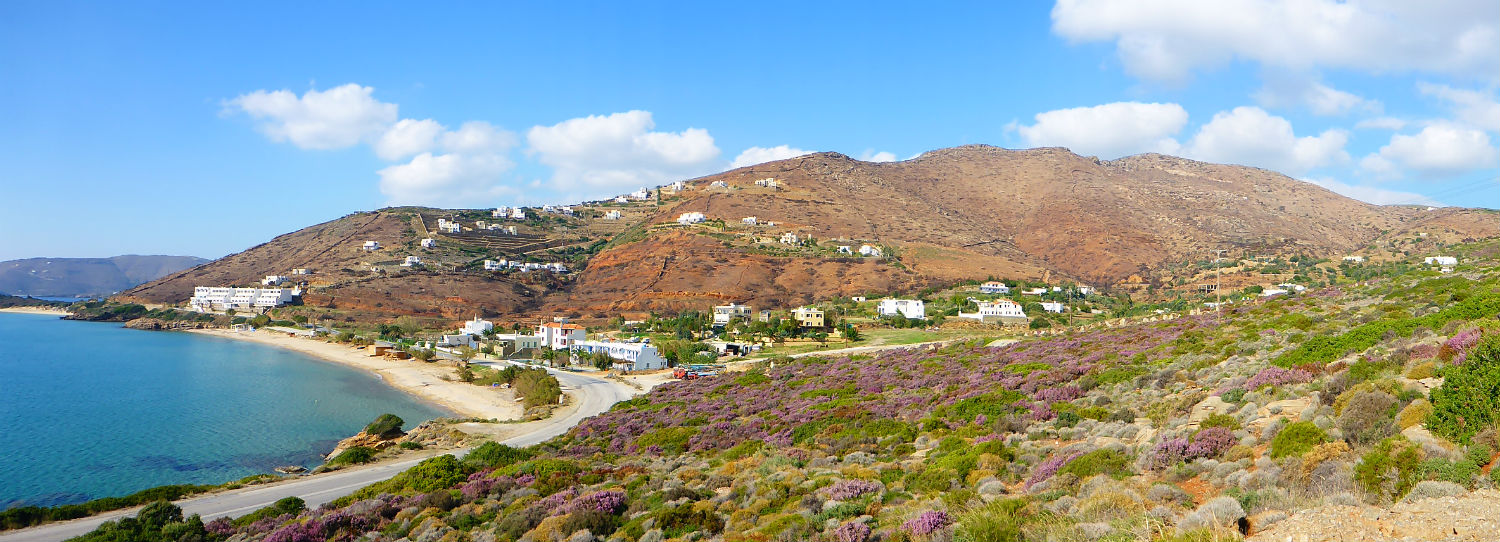Andros
Andros: The Centre of Cycladic Culture and Shipping!
Archaeological sites, classic mansions and traditional architecture, museums, hiking trails and rich vegetation are some of the unique characteristics that visitors can experience during their wandering on the island. Andros, that took its name from Anios, descendant of the ancient gods Apollo and Dionysus, is the second largest island of Cyclades.
(c) E. Korakaki/ WWF Greece
During the 3rd century BC, the island became the main centre of the Cycladic civilization, while in recent history it was marked by its naval tradition since the island possessed one of the biggest commercial fleets in the Aegean.
Andros differs from the rest of the Cyclades islands due to its diverse natural environment, its frequent and heavy rains and its rivers, streams, and springs like the well-known Sariza Spring. The Vitali cove that can be found in the northern part of the island, as well as the central bay have been identified as “Sites of Community Importance” (SCI) and are listed in the Natura 2000 Network of European Ecologically Important Areas.
It is indeed a landscape of great natural beauty and ecological value, with canyons and springs and the highest mountain peak, Mount Petalo (997 meters height) that can be found at the Aegean Archipelagos.
The visitor will have the chance to see a huge variety of habitats, such as chestnut forests which are found nowhere else in the Cyclades. Moreover, Andros has a total of 13 wetlands (Vitali, Achla and Atenis bay, Ateni, Pitharas waterfall (Sariza), Aladino, Chora, Gialia Zorkou bay, Fellos, Kantouni, Vori and Gayrio) many of which are in excellent condition and hence worth visiting.
(c) E.Tziritis/ WWF Greece
The local community of the island seems to be environmentally conscious and frequently organizes seminars and public events for the protection of the natural environment. During the past few years the Centre for Environmental Education of Korthi has played a key role by organizing a number of educational activities for schools, locals and the island’s visitors focusing on the conservation of Andro’s unique ecosystems.





